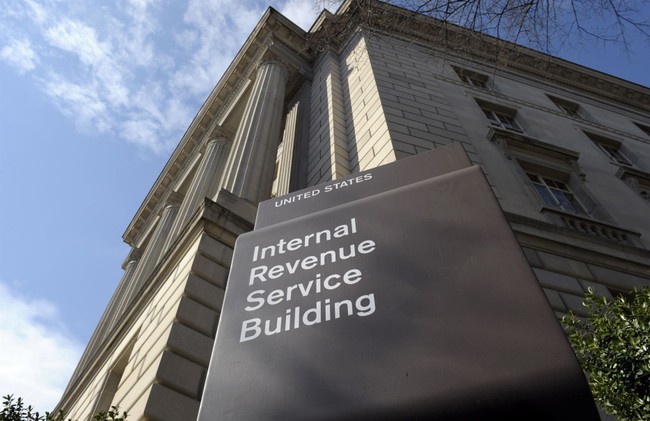Just since last November, the most closely watched measure of consumer confidence about the economy has soared by about 25 percent. That’s among the most rapid improvements recorded in years for the University of Michigan’s Index of Consumer Sentiment, even after a slight decline in the latest figures released yesterday.
And yet, even as consumer confidence has rebounded since last fall, President Joe Biden’s approval rating has remained virtually unchanged—and negative. Now, as then, a solid 55 percent majority of Americans say they disapprove of his performance as president in the index maintained by FiveThirtyEight, while only about 40 percent approve.
That divergence between improving attitudes about the economy and stubbornly negative assessments of the president’s performance is compounding the unease of Democratic strategists as they contemplate the impending rematch between Biden and former President Donald Trump. Most Democratic strategists I spoke with believe that brightening views about the economy could still benefit Biden. But many also acknowledge that each month that passes without improvement for Biden raises more questions about whether even growing economic optimism will overcome voters’ doubts about him on other fronts.
Doug Sosnik, the chief White House political adviser to Bill Clinton during his 1996 reelection, told me that if he was in the White House again today, “I would say I’m not that concerned” about improving economic attitudes not lifting Biden yet, “because this takes time.” But, Sosnik added, “if you come back to me in six weeks or two months and we haven’t seen any movement, then I’d start becoming very concerned.”
Historically, measures of consumer confidence have been a revealing gauge of an incumbent president’s reelection chances. Presidents Ronald Reagan, Clinton, and Barack Obama, as I’ve written, all saw their job-approval ratings tumble when consumer confidence fell early in their first terms amid widespread unease over the economy. But when the economy revived and consumer confidence improved later in their term, each man’s approval rating rose with it. Riding the wave of those improving attitudes, all three won their reelection campaigns, Reagan in a historic 49-state landslide.
By contrast, when Presidents Jimmy Carter and George H. W. Bush lost their reelection bids, declining or stagnant consumer confidence was an early augur of their eventual defeat. Collapsing consumer confidence amid the coronavirus pandemic in 2020 also foreshadowed Trump’s defeat, after sustained optimism about the economy had been one of his greatest political strengths during his first three years.
Polling leaves little doubt that since last fall, more Americans are starting to feel better about the economy. An index of economic attitudes compiled by the Gallup Organization recently reached its highest level since September 2021. Even after the small retreat in the latest numbers, the University of Michigan’s index is now at its highest level since the summer of 2021. A separate consumer-confidence survey conducted by the Conference Board, a business group, also slipped slightly in February but remains higher than its level last fall.
None of this, though, has yet generated any discernible improvement in Biden’s standing with the public. In fact, the recent Gallup Poll that documented the rise in economic optimism since last October found that Biden’s approval rating over the same period had fallen, from 41 to 38 percent—a single percentage point above the lowest mark Gallup has ever measured for him. The fact that consumer confidence has revived without elevating Biden’s ratings suggests “that impressions of his economic handling have been set and will likely be hard to change as he faces other struggles with perceptions of age and capacity,” the Republican pollster Micah Roberts told me.
Paul Kellstedt, a political scientist at Texas A&M University, told me that two big structural shifts in public opinion help explain why Biden has not benefited more so far from these green shoots of optimism.
One, Kellstedt said, is that the relationship is weakening between objective economic trends and consumer confidence. Compared with the days of Reagan or Clinton, more voters in both parties are reluctant to describe even a booming economy in positive terms when the other party holds the White House, Kellstedt noted. Given Biden’s record of overall economic growth and job creation, as well as the dramatic rise in the stock market, the consumer-confidence numbers, though improving, are still lower “than they should be based on objective fundamentals,” he told me.
Still, optimism about the economy has increased since last fall, not only among Democrats but also among independents and even Republicans, trends that have lifted previous presidents. That points to what Kellstedt calls the second structural challenge facing Biden: The relationship between voters’ attitudes about the economy and their judgments about the president is also weakening.
Amid these new patterns in public opinion, “a strengthening economy is not going to hurt Biden, of course, but how much it is going to help him is quite uncertain,” Kellstedt told me.
Political strategists in both parties believe another central reason Biden isn’t benefiting more from the many positive economic trends under his presidency is that so many Americans remain scarred by the biggest exception: the highest inflation in four decades. Although costs aren’t rising nearly as fast as they were earlier in Biden’s presidency, for many essentials, such as food and rent, prices remain much higher than when he took office.
Jay Campbell, a Democratic pollster who also surveys economic attitudes for CNBC, told me that more than anything else, “what is holding back” Biden from rising is that “it is still well within your memory when you were spending at the grocery store 10 to 20 percent less than you are now.”
Republicans see a related factor constraining Biden’s potential gains: The baseline that voters are comparing him against is not in the distant past, but what they remember from the Trump presidency before the pandemic. Even though the University of Michigan’s consumer-confidence index and Gallup’s Economic Confidence Index have improved substantially since last year, for instance, in absolute terms they still stand well below their levels during Trump’s first three years. “There’s an alternative economic approach that voters can remember and compare to the years under Bidenomics,” Roberts told me. Jim McLaughlin, a pollster for Trump’s 2024 campaign, told me voters don’t credit Biden for moderating inflation largely because they blame him for causing it in the first place.
A silver lining in all this for Biden is that, as Kellstedt noted, voters’ judgments about which candidate can better manage the economy don’t determine their preferences in the presidential race as much as they once did. Today, as I’ve written over the years, the two political coalitions are held together more by shared cultural values than by common economic interests.
As recently as the 2022 election, Democratic House candidates not only carried the small share of voters who described the economy as good, but also won more than three-fifths of the much larger group who called it only fair, according to exit polls. That was primarily because a historically large number of voters down on the economy, and Biden’s performance, nonetheless rejected Republican candidates whom they viewed as a threat to their rights (particularly on abortion), their values, and democracy itself. That same dynamic will undoubtedly help Biden in 2024, particularly among upper-middle-class voters who have felt less strain over inflation, are most likely to be benefiting from the stock market’s surge, and are the most receptive to Democratic charges that Trump will threaten democracy and their personal freedoms.
But Biden also has plenty of his own vulnerabilities on noneconomic issues. Not only Republicans but also independents give him dismal ratings for his handling of immigration and the border. His expansive support of Israel’s war against Hamas has deeply divided the Democratic coalition. And a broad consensus of voters, now often about 80 percent or more in polls, worry that Biden is too old for another term. If attitudes about the economy continue to mend, and Biden’s approval remains mired, “the stories that will be written is that voters have tuned him out, they’ve made their minds up, he’s too old,” Sosnik told me.
Trump inspires such intense resistance that Biden, in a rematch, is virtually certain to win more support than any modern president from voters who are pessimistic about the economy. But that doesn’t mean Biden can overcome any deficit to Trump on the economy, no matter how large. And that deficit right now is very large: In national polls released last month by both NBC News and Marquette University Law School, voters trusted Trump over Biden for handling the economy by about 20 percentage points.
At some point, the strategists I spoke with agree, the economic hole could become too deep to climb from by relying on other issues. (Both the NBC and Marquette polls showed Biden running much closer to Trump in the ballot test than on the economy—but still trailing the former president on the ballot test.) To overtake Trump, Biden likely needs twin dynamics to continue. He needs the slight February pullback evident in the University of Michigan and Conference Board surveys to prove a blip, and the share of Americans satisfied with the economy to continue growing. And then he needs more of those satisfied voters to credit him for the improvement.
Biden has some powerful arguments he can marshal to sell voters on his economic record. Wages have been rising faster than prices since last spring, particularly for low-income workers. The big three economic bills Biden passed in his first two years have triggered an enormous investment boom in new manufacturing plants for clean energy, electric vehicles, and semiconductors, with the benefits flowing disproportionately toward smaller blue-collar communities largely excluded from the tech-heavy information economy. He can also point to significant legislative achievements that are helping families afford prescription-drug and health-care costs—a potentially powerful calling card, especially with seniors. If the Federal Reserve Board cuts interest rates by this summer—which it has signaled it will do if inflation remains moderate—that could turbocharge the improvement in consumer confidence.
“There is so much other good news that I feel like there’s a case to be made to people that this president has substantially improved the economy,” Campbell told me. “But whether that ultimately supersedes people’s negativity about [inflation] is a question that I don’t have an answer to.”
Biden still has time to improve his standing on the economy, but that time isn’t unlimited. Sosnik says history has shown that voters solidify their judgments about a president’s performance in the period between the second half of his third year in office and the first half of his fourth year, about four months from now. President John F. Kennedy, speaking about the economy, famously said, “A rising tide lifts all boats.” The next few months will reveal whether Biden’s has run aground too deeply for that still to apply.













.png?itok=SPEjT6FZ)







Discussion about this post